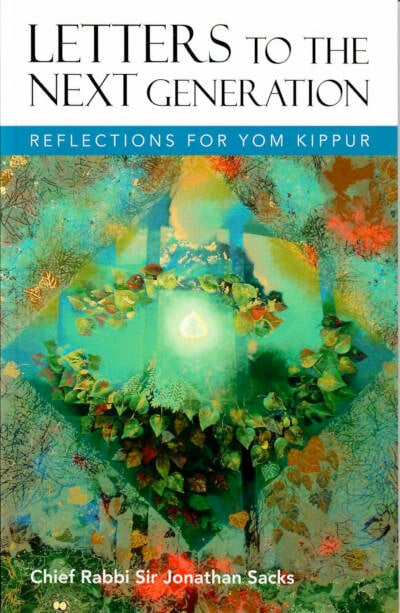‘Seek God where He is to be found, call Him when He is close.’
The Sages were puzzled by this verse. When is God not close? Surely God is everywhere. Their answer was profound. God is always close to us, but we are not always close to God. When are we close?
‘During the ten days between Rosh Hashanah and Yom Kippur.’
Why is God close on these days? Because it is then, asking to be written in the book of life, we reflect most deeply on our own life. What have I achieved? What have I failed to achieve? What did I do wrong? How can I put it right? What am I here to do?
Whether we believe, or don’t believe, these are religious questions. Science can tell us how life began, but it can never tell us what life is for. Anthropology can tell us the many ways in which people have lived, but it can never tell us how we should live. Economics and business studies can tell us how to generate wealth, but they cannot tell us what to do with the wealth we have made.
The reason is that every science tells us about the relationships between phenomena within the system, whatever the system, be it sub-atomic particles, arrangements of power, or the workings of the market. But purpose, meaning, significance, lie beyond the system.
The various sciences, natural, social or human, can tell us how, but not why. The ‘why’ questions ask us to lift up our eyes beyond the immediate, in search of the ultimate. The name we give to the ultimate ultimate is God. The search for meaning is the religious quest, and on Rosh Hashanah and Yom Kippur it reaches its greatest intensity.
God is always close to us, but we are not always close to God. How then do we come close to Him? Some religions assume that, first we have an experience of God, then we decide to lead a religious life. In Judaism we assume the opposite: first we lead a religious life; only then, slowly, falteringly, do we begin to have the experience. ‘We will do, then we will understand’, said our ancestors at Mount Sinai. So it is in all matters of the soul. We learn to love music by listening to music. We learn to be generous by performing acts of generosity. ‘The heart follows the deed’, said the medieval classic Sefer ha-Hinnuch. Don’t expect to have faith or find God by waiting for Him to find us.
We have to begin the journey. Then God meets us halfway.
There are many ways of finding God, many paths to the divine presence. In this anthology I have concentrated on ten, but there are others. Some are moved by Jewish music, others by Jewish history, others again by Jewish literature and art. Some rediscover their roots by travelling to places where their ancestors lived; others by working for the community, fighting antisemitism, raising funds for charity or volunteering to help ensure our security. Where we begin doesn’t matter, so long as we begin. Jewish life is the circumference of a circle at whose centre is God. That is where we meet, whatever our starting point.
I have chosen just ten of the most important ways, one for each of the days from the start of Rosh Hashanah to the end of Yom Kippur. The first is identity. We are born into a family that has a history. Who are we? To which story do we belong?
The second is prayer, the most focused way in which we reach out to God. Third is study, the highest of all Jewish acts, which the Sages said was more holy even than prayer. Fourth is mitzvot, the way of the commands. In prayer we find God by speaking; in study we find God in listening; in mitzvot we find God by doing.
Then come the three great attributes of the Jewish personality: tzedakah, love as justice; chessed, love as compassion; and emunah, love as loyalty. Judaism is a religion of love, not the mystical, otherworldly love that hovers above the world, leaving its imperfections intact, but the love that engages with the world, trying – one act at a time, one day at a time, one life at a time – to make it a little less cruel, a little more human and humane.
Then, lastly, come the three great expressions of Jewish life: Israel, the one place on earth where Jews have the chance to do what every other nation takes for granted, namely the right to rule ourselves and create a society in accordance with our beliefs; Kiddush Hashem, sanctifying God’s name in the world by acting as God’s ambassadors; and lastly Jewish responsibility, the idea that we are God’s partners in the work of creation, and there is work for each of us to do in this tense and troubled age.
This is not a sequential book; it is an anthology of readings, any of which may be the starting point of a personal meditation, framed by such questions as: How does this apply to me? How can I act on it in the year to come? Some may not speak to you, others will. For there are as many ways to the Divine Presence as there are Jews, said Rav Nachman of Bratslav. Or as I put it: Where what we want to do meets what needs to be done, that is where God wants us to be.
However long we live, life is short, too short. Every day matters. Every day in which we do not do some good deed, take some step toward God, is a day wasted – and our days on earth are too few to waste even one. May God bless you in the coming year, and may He bless us all, with peace, with health, with happiness, with life.
Chief Rabbi Jonathan Sacks
Tishrei 5768









